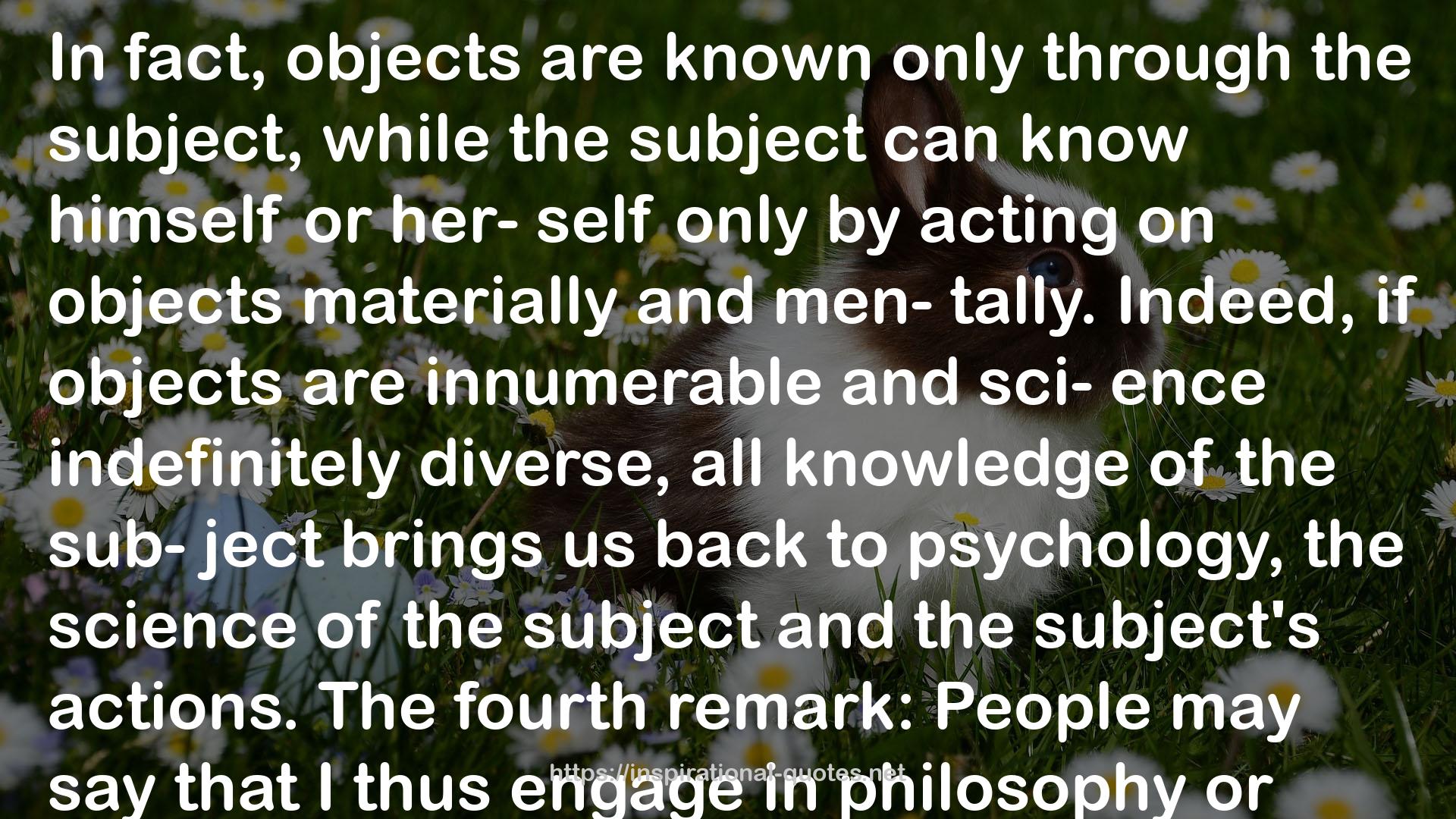" In fact, objects are known only through the subject, while the subject can know himself or her- self only by acting on objects materially and men- tally. Indeed, if objects are innumerable and sci- ence indefinitely diverse, all knowledge of the sub- ject brings us back to psychology, the science of the subject and the subject's actions.
The fourth remark: People may say that I thus engage in philosophy or epistemology and no longer in scientific psychology. But, in the research that we pursue, it is impossible to dissociate psychology from epistemology. Indeed, if we study only one level of development (for example, that of the adult or adolescent), it is easy to distinguish the prob- lems: psychological experience, emotions, intelli- gence and its functions, etc., on the one hand, and the broad problems of knowledge (epistemology), etc., on the other. But if we want to study cogni- tive functions and pursue a developmental point of view in order to study the formation and trans- formations of human intelligence (and this is why I specialized in child psychology), then the prob-
lems must be formulated very differently: How is knowledge acquired, how does it increase, and how does it become organized or reorganized? These are the very questions that must be answered. "
― Jean Piaget
Image for Quotes

